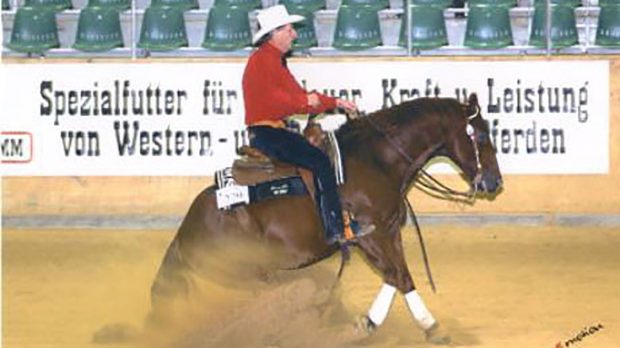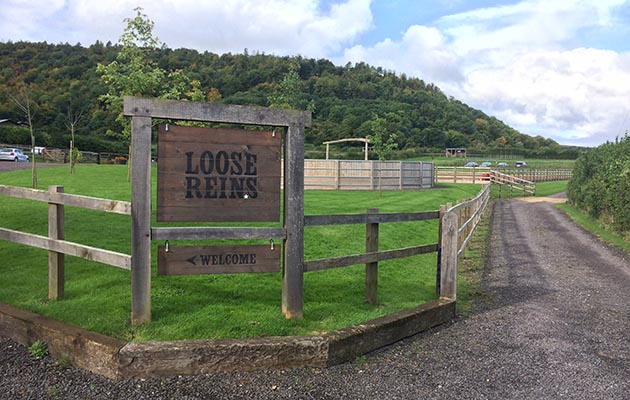I doubt that I am the only person with horrendous memories of taking American friends riding, who said they had “ridden all mah life” and watched them disappear into the distance, unable to masterthe quietest hack.
That sort of experience blinds us to the skill and finesse of Western riding.
However, now it is becoming more internationally accepted as a competitive discipline.
The International Equestrian Federation (FEI) has recognised reining, with the first Nations Cup being held in Italy in May 2001.
In Britain, there are 1,600 pure-bred registered Quarter Horses.
The breed rarely stands over 16hh but is rugged, big in the haunches, supple at the wither, broad in theneck and wide across the chest.
There are approximately 50 local shows in this country and nine major annual events offering classes such as:
Competitions are held under rules of the Western Equestrian Society, the American Quarter Horse Association UK and the British Reining Horse Association.
These three have about 1,600 members between them.
Understanding reining
In reining, the skill of the trainer and the natural grace of the horse come together.
The Western horse is trained to respond mostly to legs and seat.
The philosophy is based on teaching him two-way communication.
The basis of every correctional aid is that, whenever pressure is applied, it is released immediately when the horse performs the required movement.
During training, a horse is placed in the correct position and left to work things out for itself.
Most learn fast: do something wrong and you hit resistance, which stops the second you even try to do things right.
The right bit
Those bits that look so fierce are not.
The young horse’s first bit is a snaffle and when he is approaching collection, he is fitted with a series of curbs with ported mouthpieces.
These allow maximum space for the tongue and do not interfere with the palate.
Reining is executed at high speed witha loose rein, and, at first sight, sliding stops are mind-blowing.
The reiner’s aim is to ride in perfect collection without a noseband, on the weight of a 6mm floating rawhide rein.
Each contestant performs the same required pattern, just like in a dressage test.
Cutting horse competitions, quarter horse racing and barrel racing are not organised in this country, although there are occasional one-off events.
Cutting is not for the faint hearted. Competitive cutting tests the ability of ahorse to go into a herd of wild longhorns, bring out a selection, cut one out and keep it away from the herd.
It is like leaving the starting gates on a racehorse and, within 15 yards, stopping, turning and dashing back to do it all over again.
All this with a looped rein and one hand free!
The cowboy must be balanced, his eyes on the cow, his body with the horse.
A horse can jump ahead or aside a cow to stop it turning.
Unless the rider is thinking four to five seconds ahead of the horse and in perfect synchronisation, on a fast pivot turn he will fly out of the side door.
Top riders can win between $1-3m annually.
Horses change hands for many thousands of dollars and top stallions are insured by syndicates, as no one company dares underwrite the risk.
How much does it cost to get started?
But the biggest investment will be learning to ride all over again.
Trust me, you can’t ride English and rein on a Quarter Horse.
For more information contact the American Quarter Horse Association UK (tel: 01303 814879)




